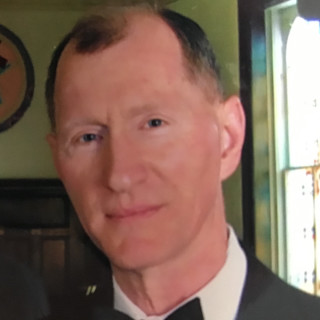This content is provided for informational purposes only and does not constitute financial, tax, legal or other advice. Any strategies discussed should not be undertaken by any individual without prior consultation with an appropriate professional for the purpose of assessing whether such strategies are suitable for their particular situation.
What investing advice do you have for physicians in the early stages in their career?
I will tell you straightaway the most important point of this piece: Thrift creates wealth. Debt destroys wealth.
No matter how much you make, if you spend it all, you have nothing to invest. To quote Peter Lynch of Fidelity Magellan, “Savings is the key to creating wealth.”
With just a little thrift, medical students could significantly decrease their debt. Saving just $5.48 per day, less than the cost of a Mocha Frappuccino or Caramel Macchiato at Starbucks, for 365 days amounts to $2,000 per year. If one does this every day for the four years of college and four years of med school, and add in the eight years of accumulated interest, the total is $20,000, which is 10% of the average medical student debt in the U.S.
A particularly vulnerable time for physicians is when they finish training and enter practice. Income will triple or quadruple overnight. Things that were previously a pie-in-the-sky dream quickly become a necessity.
I think everyone, no matter where they are in life, should save 10% of what they make. This was the average savings rate in the U.S. from the end of World War II until the end of the century. Physicians should save a minimum of 20%. Physicians who earn above the average salary of $300,000 should save at least one-third: one-third for taxes, one-third for living expenses, including your mortgage and your children’s education, and one-third for savings.
Physicians will never be the richest person in town. How do you define “rich” anyway? Your goal should be financial security. To live a solid upper-middle-class lifestyle, to provide enrichment activities for your family, a superior education for your children, and to be able to retire when you wish rather than work because you must. It is terrible to see physicians work after their skills have waned just to make ends meet. It is demeaning for them, and not in the best interests of their patients.
The Doctor’s Lounge can be a particularly dangerous place for the young physician. They will hear a senior colleague bragging about a limited partnership available to only a few select investors that is sure to realize a 10-fold gain over five years, with tax advantages to boot. You won’t hear that within a year it has gone bust. Don’t be seduced by flash and glitz. Seek out the advice of the senior physicians who you know are financially secure.
One more point. Physicians are smart people, usually the smartest kids in the class. That doesn’t make them smart at everything. I know many excellent physicians who realize they aren’t good at money management, and let their spouses handle the money. Everyone comes out ahead. It is a sign of strength, not weakness, to admit your limitations.
The Medical Business column features questions from the Doximity community answered by physicians versed in finance. Have a question? Post it in the comment section.
Dr. Robert Doroghazi is a retired cardiologist who trained at the University of Chicago, the Massachusetts General Hospital, and Barnes Hospital. He is on the Editorial Boards of The American Journal of Cardiology and The American Journal of Medicine, and writes The Physician Investor Newsletter.
Illustration by Jennifer Bogartz







